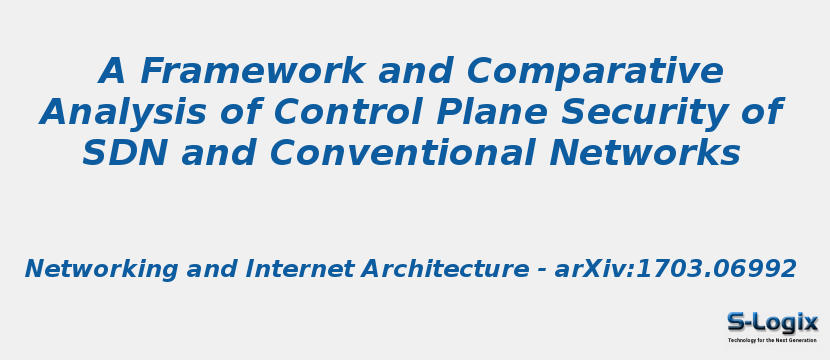Research Area: Software Defined Networks
Software defined networking implements the network control plane in an external entity, rather than in each individual device as in conventional networks. This architectural difference implies a different design for control functions necessary for essential network properties, e.g., loop prevention and link redundancy. We explore how such differences redefine the security weaknesses in the SDN control plane and provide a framework for comparative analysis which focuses on essential network properties required by typical production networks. This enables analysis of how these properties are delivered by the control planes of SDN and conventional networks, and to compare security risks and mitigations. Despite the architectural difference, we find similar, but not identical, exposures in control plane security if both network paradigms provide the same network properties and are analyzed under the same threat model. However, defenses vary; SDN cannot depend on edge based filtering to protect its control plane, while this is arguably the primary defense in conventional networks. Our concrete security analysis suggests that a distributed SDN architecture that supports fault tolerance and consistency checks is important for SDN control plane security. Our analysis methodology may be of independent interest for future security analysis of SDN and conventional networks.
Keywords:
Control Plane
Security
SDN
conventional networks
Author(s) Name: AbdelRahman Abdou, Paul C. van Oorschot, Tao Wan
Journal name: Networking and Internet Architecture
Conferrence name:
Publisher name: arXiv:1703.06992
DOI: 10.48550/arXiv.1703.06992
Volume Information:
Paper Link: https://arxiv.org/abs/1703.06992
